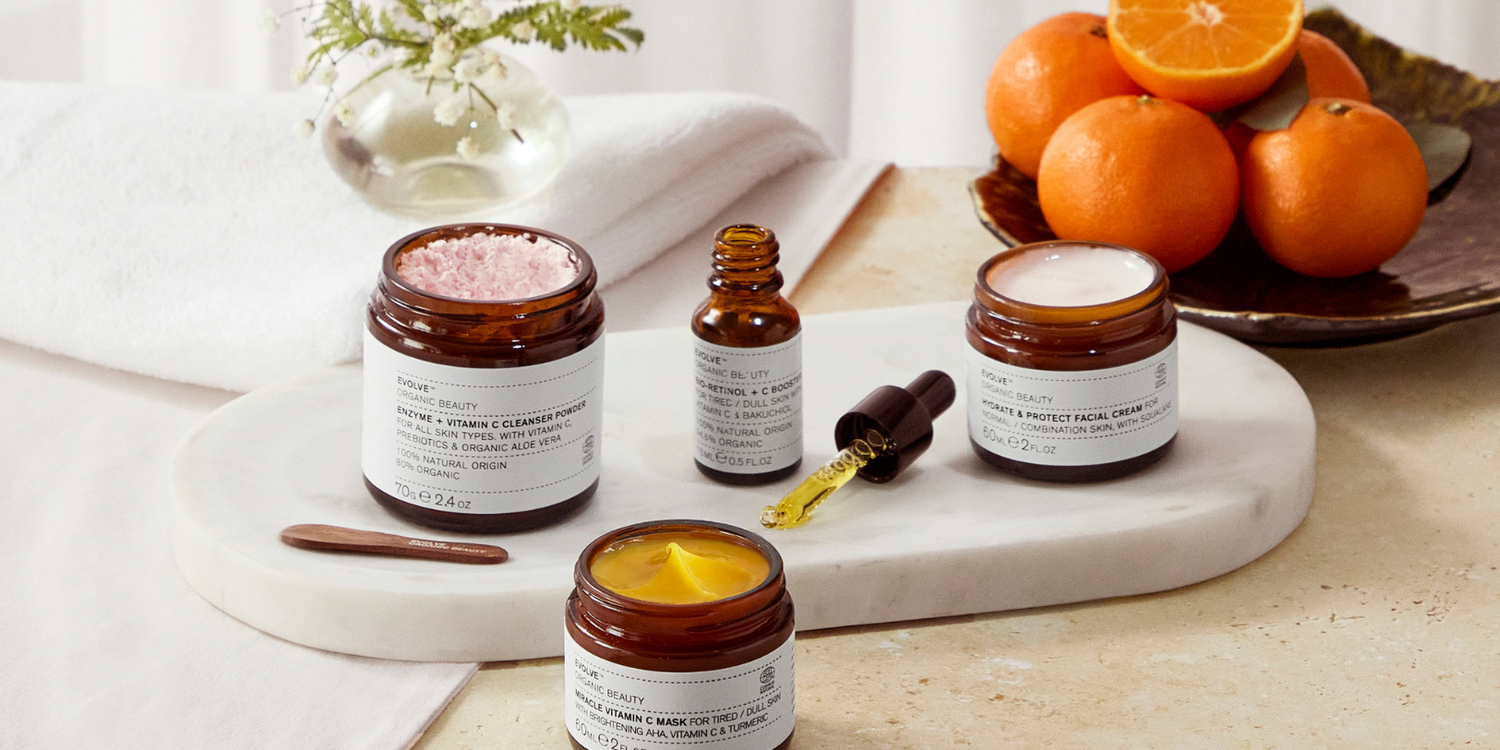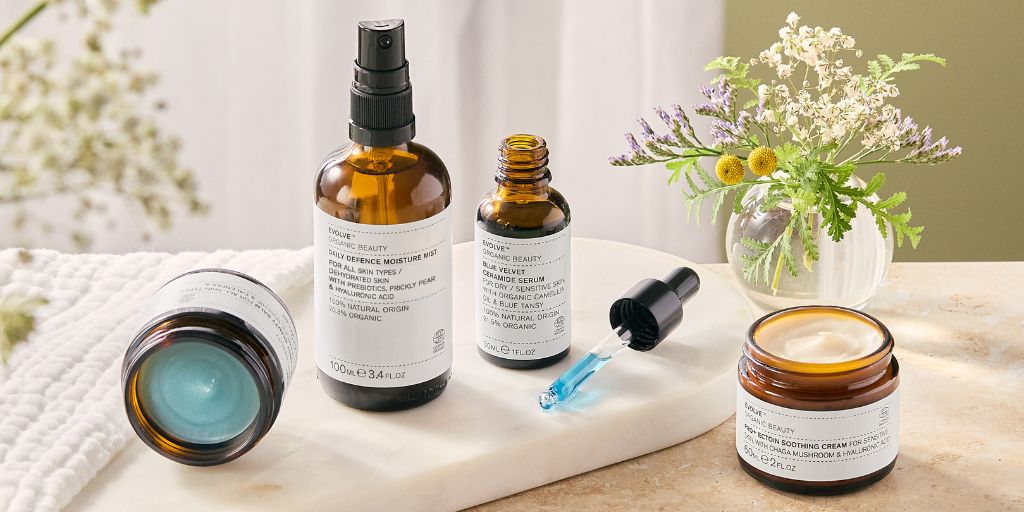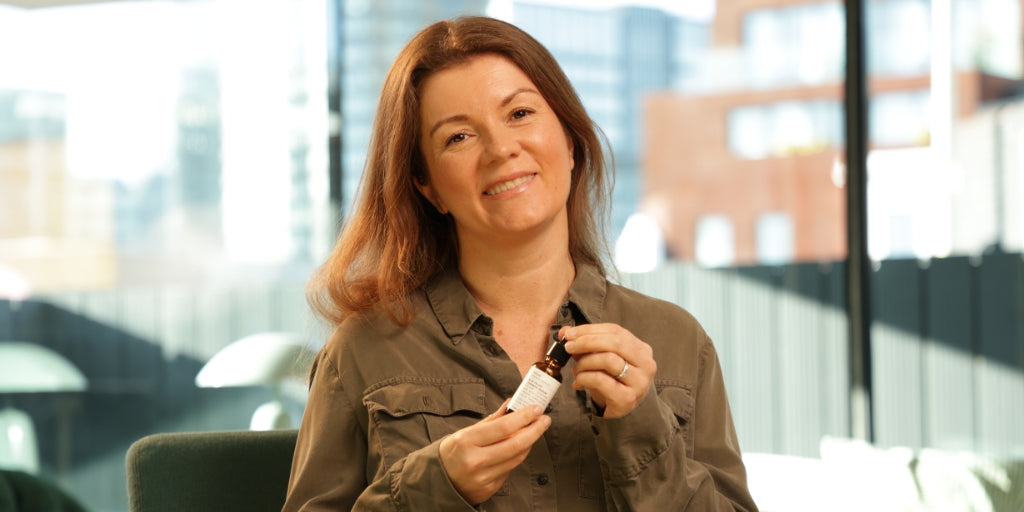We all remember a time - not so long ago - when we first got a spot. The horror!
Sadly, for many of us, that spot was just the beginning: teenage skin had arrived, and it was taking no prisoners. Of course, there are those who go through life miraculously blemish-free, sporting only envious looks in their wake.
But for the majority of us, our teenage years bring a whole host of skin concerns - as if we didn't have enough to worry about!
Whilst everyone's skin is different, it's likely that teen skin will be oilier, more acne-prone, and more blackhead-filled than it was previously. Unpredictable and sudden, breakouts can be problematic, especially when you're trying to cope with all the other stresses of teenage life.
Luckily, there are a few easy changes to make before you start freaking out.
Step away from the toothpaste trick: we're here to help!
Hormones and Skin
What causes acne?
How can you control acne breakouts?
Pillow Talk
Scarring and hyperpigmentation
Confidence with skin issues
Hormones and skin
The truth is, there's one main culprit when it comes to teenage skin dilemmas: hormones.
When puberty hits, an avalanche of hormones is released into our bodies, causing growth spurts and the awakening of reproductive functions - hello adulthood.
The whole experience can be pretty traumatic for everyone: mood swings are distinctly common, and can leave the affected party and those around them seriously wishing puberty would just hurry up and end, already.
To add insult to injury, these hormones can produce a very unwanted side effect: acne.
In fact, one specific hormone causes most of our hormonal skin concerns: testosterone. Yes, even in girls!
Though testosterone is usually associated with men, women produce it too - though typically in lower quantities.
It's an androgen, and though it literally means "male substance", it's actually present in higher levels than oestrogen in women. Additionally, testosterone has over 200 functions in women's bodies - so it's not all spots and misery!
Annoyingly, testosterone can wreak havoc on your skin though, especially if you see a sudden spike.
An overabundance of testosterone is also the reason those with Polycystic Ovary Syndrome (PCOS) often have acne-prone skin. In the case of PCOS, this is often counteracted with the combined contraceptive pill, which balances the testosterone levels with oestrogen and progesterone.
Sadly, for teenagers, this isn't always an option - but the good news is that puberty doesn't last forever!
Whilst it does last, though, the testosterone makes your body produce more sebum - the oil found naturally in your skin.
Sebum is actually hugely useful for our skin: its fatty composition makes sure that skin stays supple and more resistant to cuts and tears. In excess though, it causes oily skin, which brings with it a whole host of problems.
Oily skin is therefore a common sign of teenage skin, as sebum production goes into overdrive thanks to all those pesky hormones!
This abundance of oil causes follicles to become clogged, and glues together all the dead skin cells and any lingering dirt. This can lead to blackheads or whiteheads, which are inconvenient but not painful.
However, they can easily become infected, causing swelling, pain and pus.
Whilst this type of infection isn't dangerous, it can spread easily, so doing anything that causes the blemish to rupture and spread the bacteria is a big no!
However, it's not all bad. In fact, those with oilier skin often find that they have fewer wrinkles in later life than their dry-skinned counterparts. We guess that's kind of a consolation!
What causes acne?
Technically, what causes acne is all down to the bacteria that's already found on your skin.
However, given that this bacteria is present on everybody's skin - how come some people get acne, while others escape scot-free?

The answer again lies in the oiliness of your skin. It makes for a great breeding ground for the bacteria, and further produces clogged pores - or comedones - that trap the nasties within your skin, alongside any dirt and dead skin cells.
We know it sounds unfair, especially if you happen to have a bestie whose skin remains glowing and blemish-free, but think of the plus side.
At least once you know where the problem lies, you can set about treating your acne - and we promise it isn’t as tough as it seems.
How can you control acne breakouts?
Good news! There are a few simple things you can do to prevent acne breakouts, and reduce the impact of any that do sneak through.
Your skincare is, of course, an essential part of your skin’s wellbeing.
Cleansing
The first step is to ensure that your skin remains clean. Because acne is exacerbated by a build up of dirt and oil, keeping your skin cleansed can make a huge difference.
However, you have to be careful about the type of cleanser you’re using. Whilst it might be tempting to opt for one that will dramatically strip oil from your skin, this will actually cause more problems.
Our skin tends to react to a loss of moisture by - you guessed it - producing more sebum. The more you scrub and lather your face with harsh cleansers, the more your body will try to compensate - leaving you oilier in the long-term!
Equally, some skincare contains ingredients that are known as comedogenic, which just means that they can blog your pores.
Typically, these ingredients work well for drier skin types, as it’s much less prone to comedones forming and these ingredients tend to be hydrating and nourishing.
On oily skin, however, they can just make the problem worse.
To counteract this problem, you can try Googling a list of comedogenic ingredients, and checking that they’re not in your skincare.
Some ingredients, like sodium laureth sulfate, are best avoided for the sake of your skin anyway. Meanwhile, natural ingredients like algae extract can also cause clogging - but can work wonders for dehydrated or mature skin.
Another easy option is to opt for a water-based cleanser, rather than an oil-based one. These are usually targeted at oilier skin types, and opting for a gentle cleanser ensures your skin remains clean without doing any damage.
 |
|
Daily Detox Facial Wash |
 Our Daily Detox Facial Wash is a great example, and makes use of Moringa peptides. These help to rebalance your natural oil production, and also contain anti-inflammatory and antibacterial properties, both of which are useful in the fight against acne.
Our Daily Detox Facial Wash is a great example, and makes use of Moringa peptides. These help to rebalance your natural oil production, and also contain anti-inflammatory and antibacterial properties, both of which are useful in the fight against acne.
Acne doesn’t just target your face, though - we wish! Many people find the irritating spots on their arms, chest, and most often back.
If you’re suffering from acne on your back, the same principle applies: you need to keep the skin clean.
However, there’s something you might not have considered here: your haircare.
If you have long hair, it’s likely that whatever you put on your hair will eventually transfer to your skin.
In a lot of cases, this isn't an issue. However, when your haircare contains ingredients that are wonderfully nourishing for your hair, but comedogenic when on your skin, you might have a problem.
Again, if you think this might be affecting your skin, you’ll have to have a careful look at the ingredients of your haircare.
A key way to counteract it, though, is to ensure that you thoroughly wash out all shampoo, conditioner, and hair masks you might be using.
Leave-in products are a bit trickier, but if you’re unsure of their effect on your skin and determined to keep using them, you can always tie your hair up so that it avoids your skin!
Exfoliating
Because the build up of dead skin cells and dirt can be a key component in acne formation, keeping your skin well-exfoliated can be hugely beneficial.
 |
|
Miracle Mask |

Hopefully you’re now using a nice, gentle, made-for-oily-skin cleanser to start your morning and evening routine. Great!
Once or twice a week, you should use a mild exfoliant. There are actually two categories: physical exfoliants, which use scrubbing particles to manually break down the top layer of skin bonds, and chemical exfoliants, which sink deeper into your skin.
We know that chemical exfoliants sound scary, and extreme, but they’re actually the more gentle option.
Physical exfoliation works wonders on tougher skin like your limbs, and can be great for your face if you’re just looking for an instant glow-boost.
However, chemical exfoliants, thanks to their ability to get deeper into the skin, actually have a longer-lasting effect, and can help in your fight against acne.
Our Miracle Face Mask contains Glycolic Acid, derived from sugarcane, and papaya to gently break down the bonds that glue dead skin cells, dirt, and sebum together.
If you’re new to chemical exfoliation, it’s best to do a test patch, and once you know your skin doesn’t react, try it once or twice a week.
You don’t need to exfoliate every day, and you don’t want to strip your skin!
Targeting
Once you have a nice clean canvas, it’s time to bring in the big guns.
 |
|
Rainforest Rescue Blemish Serum £22 - For Combination-Oily Skin |
 Ideally, you want your moisturiser to be antibacterial and soothing, but before you get to that stage, consider a serum.
Ideally, you want your moisturiser to be antibacterial and soothing, but before you get to that stage, consider a serum.
Serums are the darling of the skincare world because they contain a potent combination of targeted ingredients, and there’s one for just about any skin concern you might have.
A good ingredient to look out for when battling blemishes is Salicylic Acid. It’s actually a type of chemical exfoliant known as a BHA (beta hydroxy acid), and it’s great to use in formulations that actually stay on your skin rather than being washed off.
Salicylic Acid is a known spot fighting ingredient, and helps to both unclog pores and reduce sebum production.
Our Rainforest Rescue Serum uses Salicylic Acid derived from willow bark, as well as Amazonian Acai and Copaiba, which work to reduce the production of sebum and the appearance of pores.
You just need a few drops of serum for them to do their work. Press into skin until your face feels slightly tacky, then follow with your moisturiser of choice.
Moisturising
As we mentioned above, even though it seems counterintuitive it's actually essential to keep oily skin hydrated.
Oily skin can actually be a symptom of dehydrated skin, as your body will overcompensate in sebum production. It's super important, therefore, to regularly use a moisturiser.
 |
|
True Balance Lotion |

Try to opt for one which uses lower molecular weight Hyaluronic Acid, like our True Balance Lotion, which deeply hydrates skin without adding excess oil. The smaller molecules mean that the acid can penetrate deeper into skin, hydrating for longer.
Meanwhile, those Moringa peptides make a comeback, helping your skin to ease up on the oil production.
Avocado extract further helps to reduce oiliness, and ginger plant cells mattify your face.
Pillow talk
A super simple way to prevent future breakouts is to make sure you change your pillowcase regularly.

While we sleep, dirt and sweat and skin cells rub off onto our pillows. This then transfers back onto our faces on every subsequent night!
Ideally you should be changing your pillowcase twice a week, or at the very least once a week and turning the pillow over halfway through.
How to deal with scarring and hyperpigmentation
The biggest thing to remember to prevent acne scarring is to not pick at your spots.
While it can certainly be tempting, and doesn't always result in scarring, it's a huge contributing factor.
You'll also be provoking more spots to appear, as the bacteria spreads and can enter the wound you've just created.
If you do have acne scarring, try to follow a gentle, natural skincare routine, making sure to keep your skin moisturised.
A gentle exfoliation will rid you of any dead surface cells, and can lighten the appearance of hyperpigmentation and acne.
Tea tree oil is also a great option, as its antibacterial properties means it fights acne bacteria as well as soothing scarred skin.

Confidence with skin issues
While you can rest assured that most people experience acne at some point in their lives - especially around their teenage years, we know it can be a source of insecurity.
It's great to talk about body confidence and positivity, but if you're concerned about teenage acne or oily skin, see if any of our handy tips helps!
We bet they will, but if you're following every one and still unhappy, you can always chat to your GP about prescription treatments.
Related Blogs
- The benefits of Salicylic Acid
- Glycolic Acid: What does it do for the skin?
- Evolve your oily skin routine
- Physical vs chemical exfoliation





